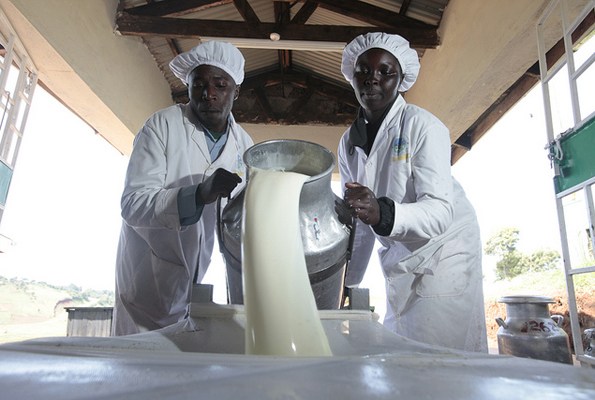Uganda still has an undeveloped dairy industry
Questions about the standards and sustainability of Uganda’s Dairy industry are re-emerging as Zambia presents a new export opportunity for Ugandan dairy products. Coca Cola Zambia has been allowed to import powdered milk to a tune of 700 metric tons per year, according to Uganda’s Dairy Development Authority.
On Wednesday, Zambia’s Ministries of Fisheries and Livestock allowed Coca-Cola to apply for an import permit from the department of fisheries and livestock marketing following an assessment of the request received earlier in the year. According to the ministry, the result of the standards assessment of the first consignment will determine whether or not the company continues importing the milk.
“Once the consignment arrives in the country, Coca-Cola Zambia will be required to surrender a sample of the powdered milk to the Central Veterinary Research Institute (CVRI) in the Department of Veterinary Services for microbiology analysis, pesticide residues, veterinary drug residue and any other test… to ensure that the products conform to the national laws and standards,” a statement by Minister Swithine Kabilika reads
Zambia’s move is a big achievement by the Ugandan dairy industry that has been struggling to export to a troublesome East African Community regional market. DDA Executive Director, Michael Kansiime says this is more evidence that the world has confidence in Uganda’s products which are now being demanded beyond the region.
“We have had no incident arising from the quality of our milk over the last 21 years, yet the milk is going to all types of markets, including the US and Japan and India,” he says. This has come despite Uganda’s value chain still being of a crude way, largely.
“The milk is not supposed to get in contact with the open environment. It is extracted from the cow by a machine and moves through tubes to the processing system until it is packaged. But here we get the milk into a bucket, then put it into a can for transportation to a collection point or cooling plant, then to trucks,” he says adding that despite this, the product has so far been safe.
Kansiime says the 700 tons a year is a good start to enter the southern African market, and the chance should not be wasted.
Uganda has been trying to dominate the regional milk market, but it has not been smooth.
Early last year, Kenya blocked Lato Milk products including 262,632 litres of milk with USD 157,106 (about 575 million Shillings) and 54,310 kilogrammes of powdered milk valued at USD 203,630 (about 743 million Shillings).
Authorities claimed the milk had standard issues but gave no further explanations. Similar incidences were reported in February this year, before Kenya imposed a 7 per cent tax on Uganda’s milk, drawing protest by Kampala to the EAC Secretariat. Such incidents prompted Uganda to look for markets elsewhere.
Kansiime says if the Zambian market is sustained, it will go a long way in redeeming the Ugandan dairy industry and boost farmers’ incomes.
Uganda produces close to 2.5 billion litres annually. Currently, there are about 135 licensed milk processors in Uganda, with three producing powdered milk, according to Dr Kansiime.
He says these companies, Amos Dairies, Brookside Dairy and Pearl Diary, have the capacity to sustain the Zambian and any other market. Uganda earns about USD 130 million annually from the export of milk and milk products.
-URN





